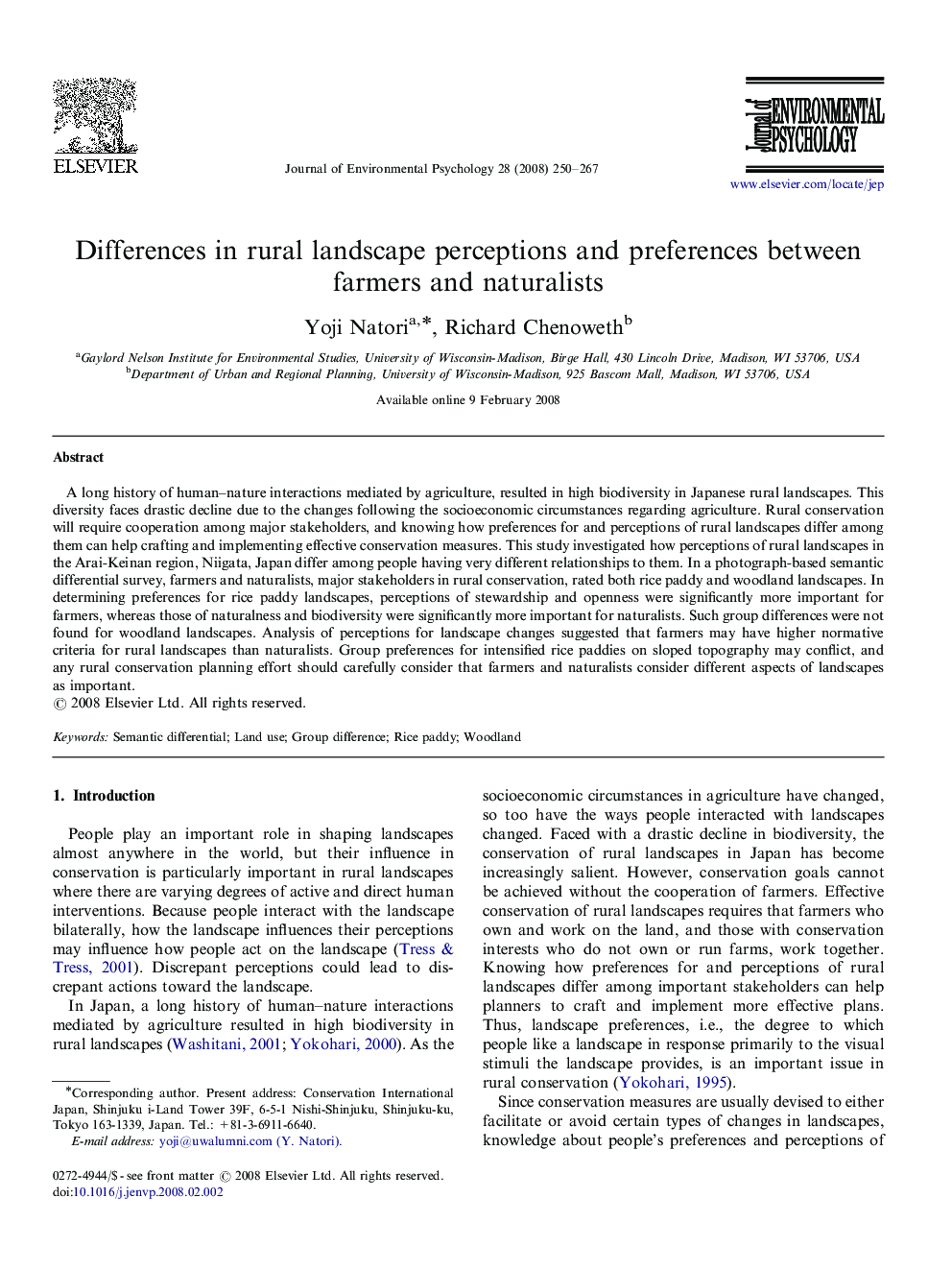| Article ID | Journal | Published Year | Pages | File Type |
|---|---|---|---|---|
| 10438620 | Journal of Environmental Psychology | 2008 | 18 Pages |
Abstract
A long history of human-nature interactions mediated by agriculture, resulted in high biodiversity in Japanese rural landscapes. This diversity faces drastic decline due to the changes following the socioeconomic circumstances regarding agriculture. Rural conservation will require cooperation among major stakeholders, and knowing how preferences for and perceptions of rural landscapes differ among them can help crafting and implementing effective conservation measures. This study investigated how perceptions of rural landscapes in the Arai-Keinan region, Niigata, Japan differ among people having very different relationships to them. In a photograph-based semantic differential survey, farmers and naturalists, major stakeholders in rural conservation, rated both rice paddy and woodland landscapes. In determining preferences for rice paddy landscapes, perceptions of stewardship and openness were significantly more important for farmers, whereas those of naturalness and biodiversity were significantly more important for naturalists. Such group differences were not found for woodland landscapes. Analysis of perceptions for landscape changes suggested that farmers may have higher normative criteria for rural landscapes than naturalists. Group preferences for intensified rice paddies on sloped topography may conflict, and any rural conservation planning effort should carefully consider that farmers and naturalists consider different aspects of landscapes as important.
Related Topics
Social Sciences and Humanities
Psychology
Applied Psychology
Authors
Yoji Natori, Richard Chenoweth,
